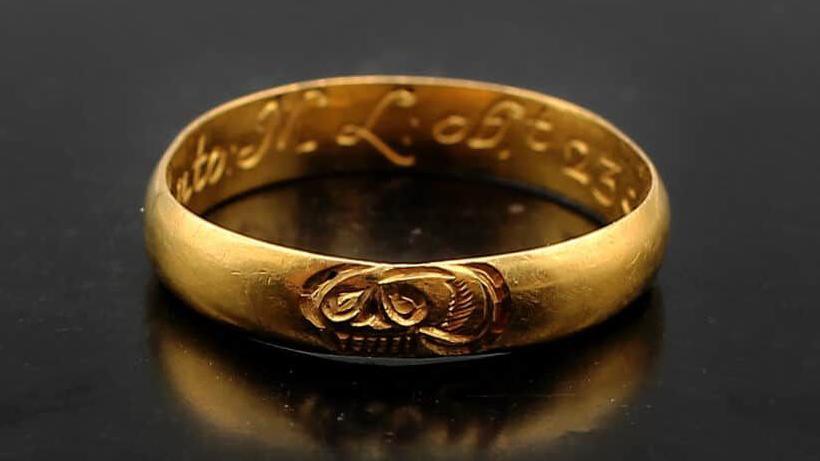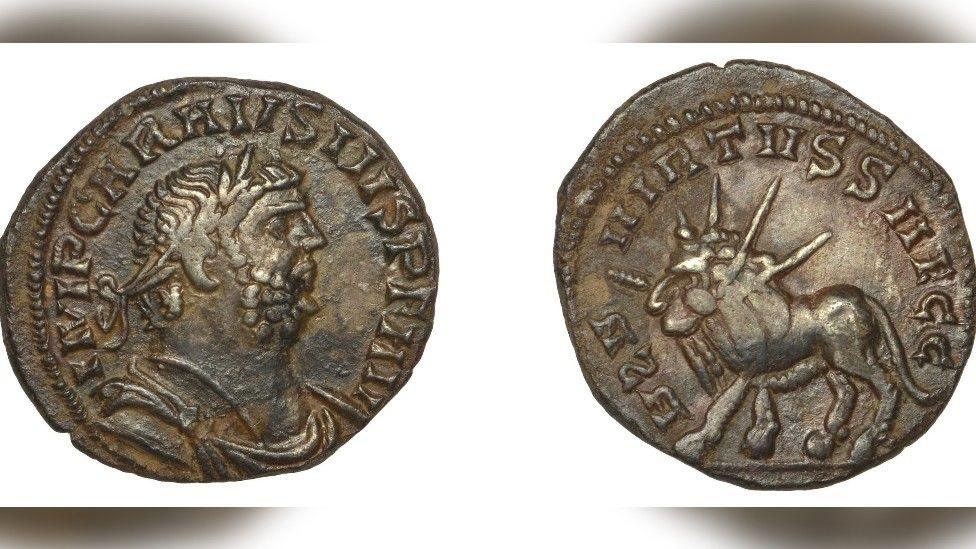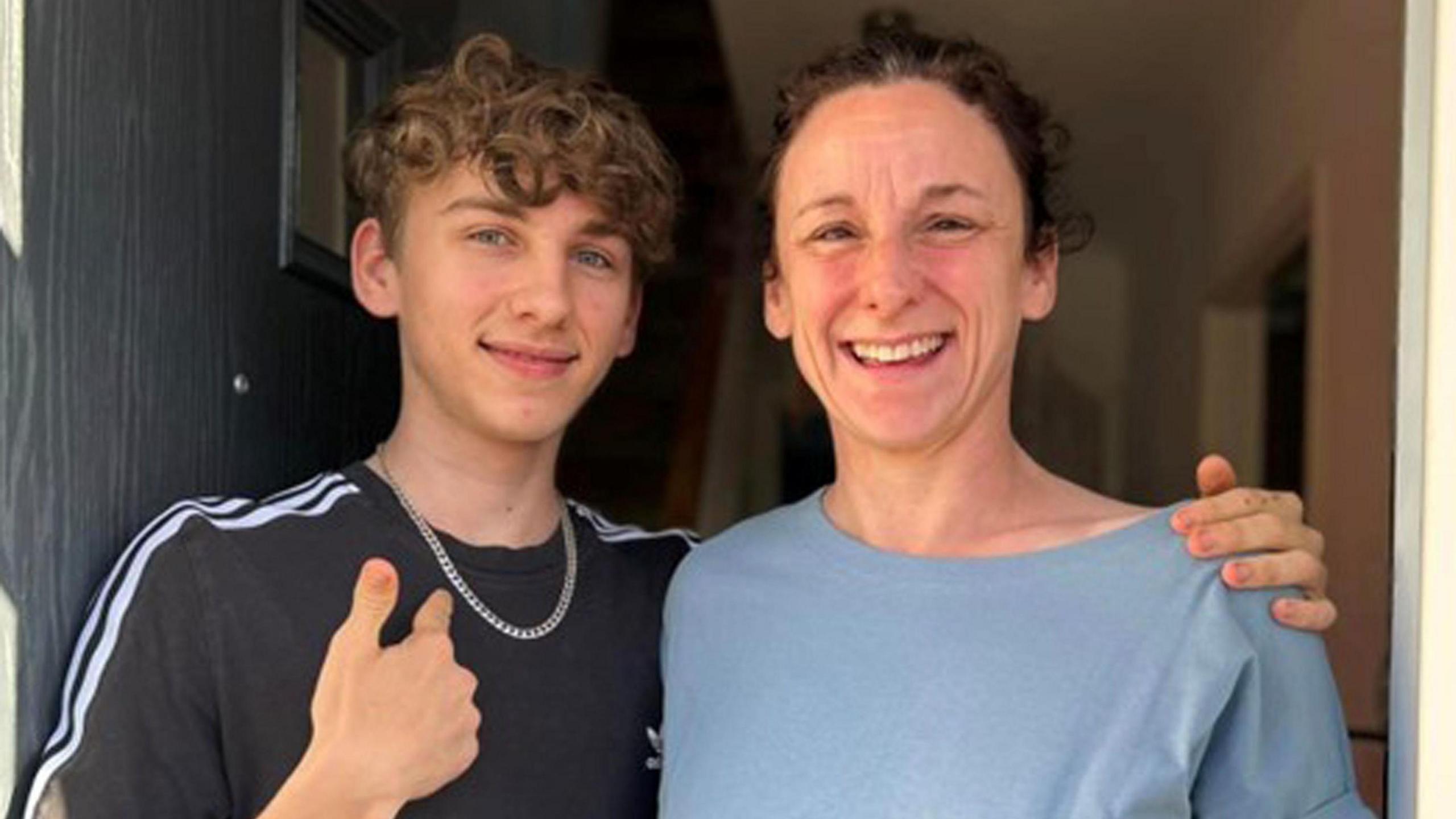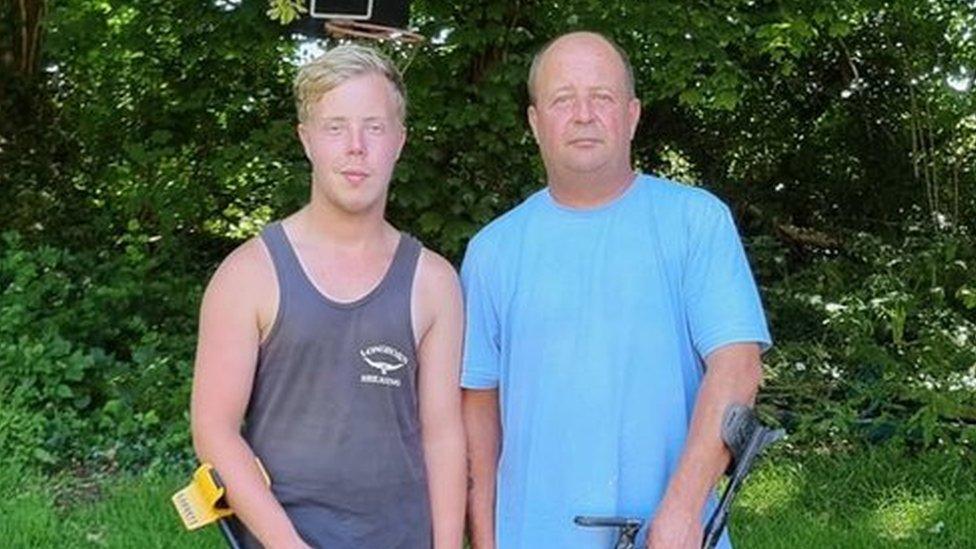Gold ring found on farm dated to 17th Century

An inscription on the ring dates it to 1692
- Published
A 17th Century mourning ring discovered by a metal detectorist in Dorset is to go under the hammer.
Anthony Woolmington, who has been metal detecting for eight years, found the ring on a farm near Shillingstone in 2021.
Unaware of its significance, he handed it to the farmer, whose son began looking in to its origins.
Research by Dorset History Centre, British Museum and Hansons Auctioneers revealed the ring commemorated a death more than 300 years ago.

The 3.7g ring is expected to fetch between £600 and £800
Mr Woolmington said he almost ignored the beeping of his machine at the end of a long day of scanning.
"I'd been out on the farm from about 10 o'clock and come about 3 o'clock I thought 'I've had enough'," he said.
"As I'm walking back, I got a beep. I started to walk away but I thought I'd go back and have a look.
"It was about six inches down. I never in my wildest dreams thought it was going to be a gold ring."
Mr Woolmington has previously found Roman coins and brooches, and located lost rings for people, including one in a lake.
"You've got to know what you're listening for and the numbers you are looking for on your detector," he said.
The mourning ring was found on farmland at Shillingstone
The inside of the band bears a maker's mark - a Gothic capital "B" - which dates it to 1692, along with the initials "ML" and date of death "23rd April 1692".
Helen Smith, head of jewellery at Hansons, described the discovery as "truly remarkable".
"Mourning rings were often crafted to commemorate significant losses, particularly during times of turmoil such as the English Civil War, the execution of Charles I, and the subsequent political upheaval.
"This ring is an extraordinary example of both craftsmanship and the deeply personal nature of jewellery in that era."
The 3.7g ring is expected to fetch between £600 and £800 when it is sold on 27 February.
Get in touch
Do you have a story BBC Dorset should cover?
You can follow BBC Dorset on Facebook, external, X, external, or Instagram, external.
Related topics
- Published22 October 2024

- Published22 July 2024

- Published1 July 2023
